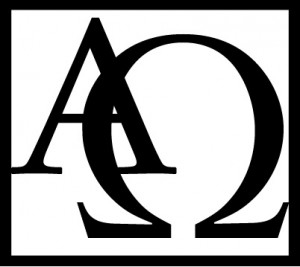 Today it will be a lesson on how each letter of the Greek alphabet sounds.
Today it will be a lesson on how each letter of the Greek alphabet sounds.
The most of you already know more than the half of the Greek alphabet even if you haven’t realized it yet.
Do these letters look familiar to you:
A, B, E, H, I, K, M, N, O, P, T, Y, X, Z
and for those who have studied mathematics :
λ, μ, π, ρ, σ, ν, φ, θ, δ, ω.
Some of them have different pronunciation but the rest sound more or less similar to the English letters.
Greek alphabet has 24 letters. I will try to give you the correct Greek sound of each letter. Notice that this is not the correct spelling but the correct sound.
| Capital |
Lower-case |
Sound |
English Name |
Greek name |
| A |
α (vowel) |
Alpha |
Alhpa |
Άλφα |
| B |
β |
Veeta |
Beta |
Βήτα |
| Γ |
γ |
Yama |
Gama |
Γάμμα |
| Δ |
δ |
Thelta (the*-lta) |
Delta |
Δέλτα |
| E |
ε (vowel) |
Epsilon |
Epsilon |
Έψιλον |
| Z |
ζ |
Zeeta |
Zeta |
Ζήτα |
| H |
η (vowel) |
Eeta |
Eta |
Ήτα |
| Θ |
θ |
Theeta |
Theta |
Θήτα |
| I |
ι (vowel) |
Yiota |
Iota |
Γιώτα |
| K |
κ |
Kapa |
Kappa |
Κάπα |
| Λ |
λ |
Lamtha (Lam-th*(e)a) |
Lambda |
Λάμδα |
| M |
μ |
Mee |
Mu |
Μι |
| N |
ν |
Nee |
Nu |
Νι |
| Ξ |
ξ |
Xee |
Xi |
Ξι |
| O |
ο (vowel) |
Omicron |
Omicron |
Όμικρον |
| Π |
π |
Pee |
Pi |
Πι |
| P |
ρ |
Ro |
Rho |
Ρω |
| Σ |
σ,ς |
Siyma |
Sigma |
Σίγμα |
| T |
τ |
Taf |
Tau |
Ταυ |
| Y |
υ (vowel) |
Ypsilon |
Upsilon |
Ύψιλον |
| Φ |
φ |
Fee |
Phi |
Φι |
| X |
χ |
Hee |
Chi |
Χι |
| Ψ |
Ψ |
Psee |
Psi |
Ψι |
| Ω |
ω (vowel) |
Omeya |
Omega |
Ωμέγα |
*same sound as the English “the”.
You may have noticed a sign above the letters in the Greek words like “ποτήρι” (poteeri = glass). This accent mark is called “tonos” and is helpful in indicating the stress in the word. The accent mark is used only on the lower case letters and only in vowels. In some cases the accentuation can change the whole meaning of the word even if it spells the same. For example: μονή(moni = monastery) and μόνη (moni = alone(female)).
Diphthongs
A diphthong is a pair of letters with different sound than their written sequence. These are:
αι: sounds the same as “ε” ,
ει,οι: sound the same as “ι,η,υ”,
γκ, γγ: sound as “g” (like in government),
μπ: sounds as “b” ντ: sounds as “d”,
γχ: sounds as “kh” ,
ου: sounds like “oo” (like in moon),
ευ: sounds as “ef“ ,
αυ:sounds as “af”.
I will give you now a small and easy exercise to check your capabilities in reading:
Try to match the words without using a dictionary. The words have almost the same sound in both languages.
| Taxi |
Χριστός |
| Rudolf |
Δολάριο |
| Tania |
Επιδημία |
| Euro |
Άβυσσος |
| Antarctic |
Ευρώ |
| Abyss |
Ρούντολφ |
| Christ |
Ταξί |
| Epidemic |
Αμερική |
| America |
Πιπέρι |
| Pepper |
Τάνια |
| Dollar |
Ανταρκτική |
Good Luck!


Comments:
Ioannis:
Just a few notes:
When you have a double consonant it is proper to pronounce the first letter as well. For example:
Παντα = panda not pada
Εμπορος = emboros not eboros
Similarly, when pronouncing a consonant with gamma, the first gamma is pronounced as “ng”:
Αγγελος = Angelos not Aggelos
Αγχος = anhos not akhos
Αγκυρα = angyra not agyra
The ONLY exception to this rule is when the double consonant is located at the beginning of the word or at the very end of word and it is pronounced as mentioned in the above article because usually these are words of non-Greek origin
Cheers
dareios:
@Ioannis Thanks for the corrections!
John:
Can we have more tests like this please, but a little harder.
Will this blog be updated on a regular basis, as I am trying to learn modern greek.
dareios:
@John Hello John,
this blog is updated in regular basis. Apart from grammar and vocabulary, customs and culture subjects are posted as well.
As per your wish, I am trying to put some test in every grammar or vocabulary post. From the next one I will set a little higher level of difficulty.
Stay tuned!
Antonios Loizides:
Congrats to all for learning Greek.